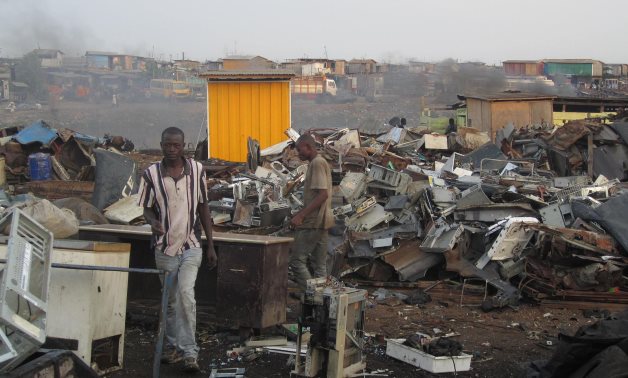
Waste in Africa - cc via wikimediacommons
CAIRO - 27 December 2022: The Egyptian presidency of the COP27 Climate Summit Conference was keen to launch the Solid Waste Management Initiative for Africa 50 by 2050, and put forward waste management strongly within the climate discussions, highlighting the state's experience in controling the waste file.
Egypt is leading the initiative to recycle 50 percent of Africa's waste by the year 2050.
Egypt shed the light on the waste management issue, given its social and environmental dimensions, in addition to its economic opportunities in the field of recycling and the inclusion of the private sector.
In this report, we highlight some of the aspects of Egypt's initiative, its objectives and methods of implementation:
1- The Solid Waste Management Africa 50 by 2050 initiative aims to address the waste management crisis in Africa.
2- The initiative seeks to treat solid waste management as an "important opportunity to contribute to mitigation and adaptation efforts to climate change at the global level."
3- It aims to recycle 50% of the continent's waste by 2050, as currently only 10% is recycled.
4- The Solid Waste Management initiative has been prepared through a participatory process in cooperation with development partners, to achieve the goal of increasing waste recycling.
5- There are contributions to development partners, especially the World Bank and the United Nations Environment Program, and technical support in preparing the Solid Waste Management Initiative for Africa 50 for Africa by 2050 through experts.
6- It seeks to link waste management to reducing plastic use, and also to improve air quality and reduce the negative impacts of climate change in the continent.
7- The initiative seeks to involve the private sector, and Egypt was keen, at the regional level, during the preparation of the initiative, to hold consultations with governments, especially through the Conference of African Ministers of the Environment (Amsen), where many African countries showed interest in the initiative.
Comments
Leave a Comment